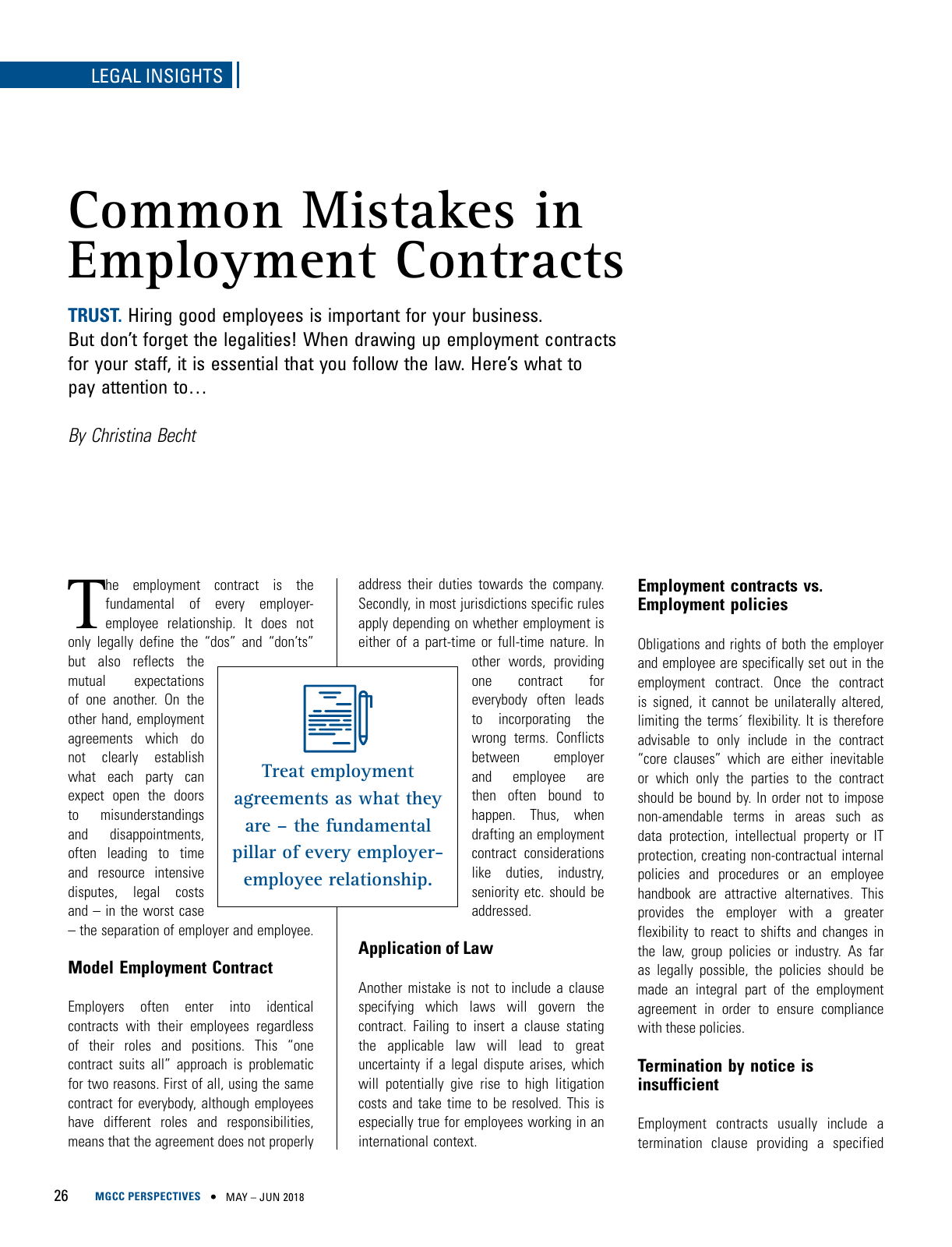26 MGCC PERSPECTIVES MAY JUN 2018 Employment contracts vs Employment policies Obligations and rights of both the employer and employee are specifically set out in the employment contract Once the contract is signed it cannot be unilaterally altered limiting the terms flexibility It is therefore advisable to only include in the contract core clauses which are either inevitable or which only the parties to the contract should be bound by In order not to impose non amendable terms in areas such as data protection intellectual property or IT protection creating non contractual internal policies and procedures or an employee handbook are attractive alternatives This provides the employer with a greater flexibility to react to shifts and changes in the law group policies or industry As far as legally possible the policies should be made an integral part of the employment agreement in order to ensure compliance with these policies Termination by notice is insufficient Employment contracts usually include a termination clause providing a specified LEGAL INSIGHTS TRUST Hiring good employees is important for your business But don t forget the legalities When drawing up employment contracts for your staff it is essential that you follow the law Here s what to pay attention to By Christina Becht Common Mistakes in Employment Contracts The employment contract is the fundamental of every employer employee relationship It does not only legally define the dos and don ts but also reflects the mutual expectations of one another On the other hand employment agreements which do not clearly establish what each party can expect open the doors to misunderstandings and disappointments often leading to time and resource intensive disputes legal costs and in the worst case the separation of employer and employee Model Employment Contract Employers often enter into identical contracts with their employees regardless of their roles and positions This one contract suits all approach is problematic for two reasons First of all using the same contract for everybody although employees have different roles and responsibilities means that the agreement does not properly address their duties towards the company Secondly in most jurisdictions specific rules apply depending on whether employment is either of a part time or full time nature In other words providing one contract for everybody often leads to incorporating the wrong terms Conflicts between employer and employee are then often bound to happen Thus when drafting an employment contract considerations like duties industry seniority etc should be addressed Application of Law Another mistake is not to include a clause specifying which laws will govern the contract Failing to insert a clause stating the applicable law will lead to great uncertainty if a legal dispute arises which will potentially give rise to high litigation costs and take time to be resolved This is especially true for employees working in an international context Treat employment agreements as what they are the fundamental pillar of every employer employee relationship

Hinweis: Dies ist eine maschinenlesbare No-Flash Ansicht.
Klicken Sie hier um zur Online-Version zu gelangen.
Klicken Sie hier um zur Online-Version zu gelangen.